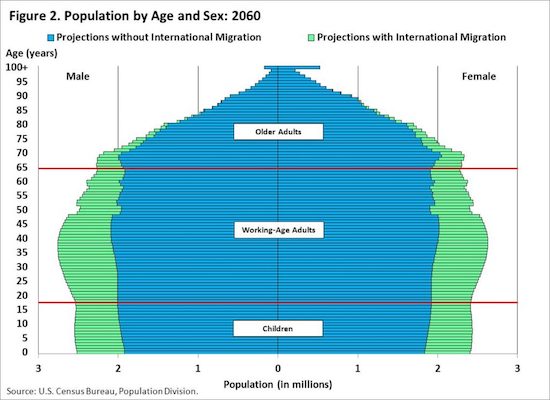In “Hail Nereus!“, Boxer asked what difference giving up anonymity would make…
“Suppose I out myself tomorrow? What would the difference be?”
…to which I replied:
Authority and leadership are antithetical with anonymity. Formally stated, if A is “anonymous” and B is “has authority or is a leader”, then the following is true:
“A → ¬B”
However, the question above asks whether the inverse is true:
“¬A → B”
From the laws of logic, we know that the inverse is not a logical consequence of a proposition. For it to be true, the inverse’s contrapositive would also have to be true:
“¬B → A”
That is, “if you don’t have have authority and are not a leader, then you are anonymous.” This is plainly false, therefore ¬A → B is false, so expecting a difference outcome because you out yourself is not logically justified. Revealing your identity is only a prerequisite to leadership and authority.
If you are not a Christian (i.e. under additional obligations) and not seeking leadership/authority, then my argument does not preclude anonymity.
Boxer responded simply:

Since we are agreeing to cite this Wikipedia article for this casual formal argument, let’s consider the argument to see if it makes my argument logically unsound. The argument can be stated like this:
We can demonstrate historically (e.g. Federalist Papers) that anonymity is associated with authority and leadership, therefore they are not antithetical.
I have multiple responses to this claim. Let’s consider some selected quotes.
“At the time of publication, the authors of The Federalist Papers attempted to hide their identities for fear of prosecution. Astute observers, however, correctly discerned the identities of Hamilton, Madison, and Jay.”
First. The authors were not truly anonymous. They were at least understood to be the anonymous identities of a small group of known individuals. They were not random individuals. This association alone gave them implied authority through their implied group identity. Furthermore, some observers were even able to deduce who they were specifically, granting them explicit authority. Therefore, the Federalist Papers are not sufficient evidence to show that any authority wielded was derived from anonymous content rather than their presumed or deduced identities.
In anticipation of a counter-argument, consider the case where the real identity of the non-anonymous source wields leadership and authority (e.g. ghost written books by politicians; hoaxes; Texan family man persona). These have authority granted based off the strength of their perceived identity. That identity could be incorrect (or questioned), but it proves that identity is still required for authority. Mistaken identity is still identity. This is why authority is instantly lost if a hoax identity is revealed.
“The Federalist Papers were written to support the ratification of the Constitution, specifically in New York. Whether they succeeded in this mission is questionable.”
Second. It is not established that the Federalist Papers were treated with the level of leadership and authority claimed. Indeed, it is likely that the anonymity is the reason why the success of the goal is questionable. In other words, anonymity impeded authority and leadership. Therefore, this is evidence in favor of my proposition, not evidence against it.
Third. I’ve noted a difference between pure anonymity and pseudonymity in our previous discussions. The Federalist Papers qualify as pure anonymity in that their content is divorced from personal anecdotes and appeals to personal authority. Compare this to someone, like Dalrock, with a carefully crafted personal persona that may or may not be real and is referenced in the content. The perceived identity is use to legitimize authority, but it’s necessarily shaky and thus ineffective. If there is a possible counter to my argument it is pure anonymity, but there are still significant hurdles against this view.
Fourth. Let’s ignore everything above and say that the Federalist Papers are a rare exception to the rule, aberrations of the norm. This changes the formal deductive argument into an inductive logic / probability argument. If you go back and assign probabilities to the propositions, perhaps you could make a claim like this:
”Authority and leadership are antithetical with anonymity 99.9% of the time.”
I’d be comfortable with this inductive inference. It adds some nuance to the argument, rather than being pure black and white, but it doesn’t really change the practical outcome much. Taking it into the probability realm favors my argument, as…
…the overwhelming historical standard for authority and leadership is identity.
There are very few cases where anonymous works were granted permanent authority based solely on their content.




